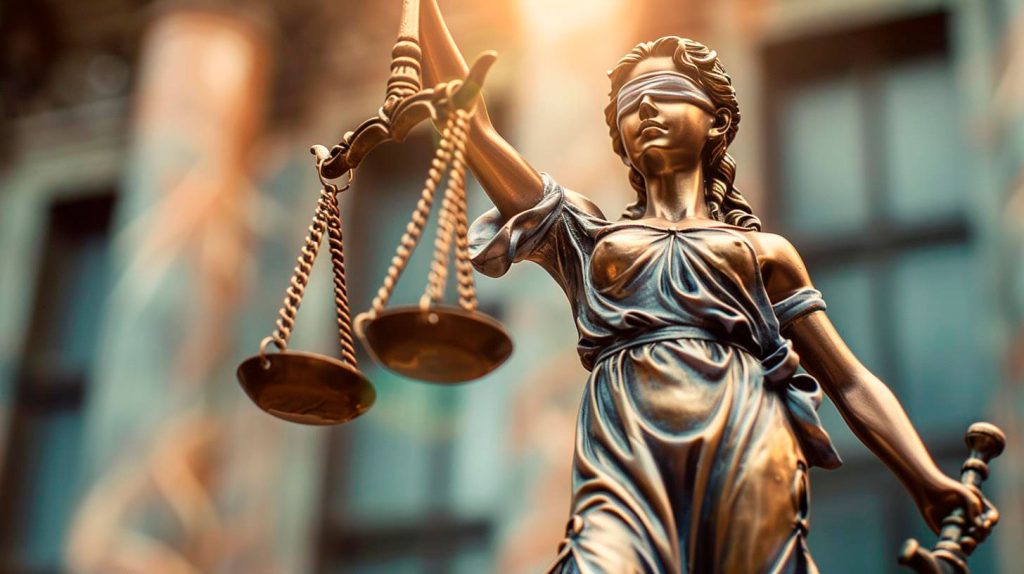
Seeking Legal Assistance for Serious Credit Report Errors
While some credit report errors may be minor and easily rectified, others can have a significant impact on your credit score. These errors can result in higher interest rates on loans, denial of credit, and even difficulty securing employment. If you believe your credit report contains serious errors that are negatively affecting your financial health, seeking legal assistance may be necessary.
The Importance of Legal Assistance
Legal professionals specializing in credit report errors can provide valuable assistance in rectifying any inaccuracies in your credit report. They have the expertise and resources to navigate the complex legal landscape surrounding credit reporting and can help you understand your rights under the Fair Credit Reporting Act (FCRA).
- Legal expertise: Lawyers experienced in credit report errors can assess your situation and determine the best course of action to correct inaccuracies in your credit report.
- Resources: Legal professionals have access to resources that can help gather evidence and build a strong case to dispute credit report errors.
- FCRA compliance: Understanding the provisions of the FCRA is crucial in challenging inaccuracies in your credit report. Legal professionals can ensure that your rights are protected throughout the process.
Common Credit Report Errors
There are several types of errors that can appear on your credit report, ranging from clerical mistakes to identity theft. Some of the most common credit report errors include:
- Incorrect personal information: Errors in your name, address, or Social Security number can result in inaccuracies in your credit report.
- Account inaccuracies: This can include accounts that do not belong to you, duplicate accounts, or inaccuracies in account status (e.g., showing a delinquent account that has been paid off).
- Identity theft: If someone has stolen your identity and opened accounts in your name, it can negatively impact your credit report.
Benefits of Seeking Legal Assistance
There are several benefits to seeking legal assistance in correcting serious credit report errors:
- Improved credit score: Rectifying inaccuracies in your credit report can help improve your credit score, making it easier to obtain credit in the future.
- Financial stability: Ensuring that your credit report is accurate can help prevent unnecessary financial hardship caused by errors in your credit history.
- Legal protection: Legal professionals can help protect your rights under the FCRA and ensure that credit reporting agencies comply with the law.
Statistics on Credit Report Errors
According to a study by the Federal Trade Commission, one in five consumers has an error on at least one of their three credit reports. These errors can have a significant impact on credit scores, with some consumers experiencing a decrease of 25 points or more due to inaccuracies. It is crucial to regularly monitor your credit report and take action to correct any errors that may arise.
Seeking legal assistance for serious credit report errors can be a proactive step in safeguarding your financial future. By enlisting the help of legal professionals, you can navigate the complexities of credit reporting laws and ensure that your credit report accurately reflects your credit history. Don’t let credit report errors hold you back – take control of your financial health today with the help of experienced legal professionals.
Remember, your credit report is a reflection of your financial history, and inaccuracies can have lasting consequences. Don’t hesitate to seek legal assistance if you believe your credit report contains serious errors that are impacting your creditworthiness. With the right help, you can set the record straight and move forward with confidence in your financial future.
Working with Credit Bureaus to Correct Inaccuracies
One of the key steps in resolving these issues is to work with credit bureaus to correct any inaccuracies that may be present on a client’s credit report. Credit bureaus, such as Equifax, Experian, and TransUnion, are responsible for collecting and maintaining information about individuals’ credit histories. They rely on creditors, such as banks and credit card companies, to provide them with this information.
It is important for individuals to regularly review their credit reports to ensure that the information being reported is accurate. According to a recent study conducted by the Consumer Financial Protection Bureau, about 20% of consumers have at least one error on their credit report. These errors can range from incorrect personal information, such as a misspelled name or wrong address, to more serious issues, such as accounts that do not belong to the individual or inaccurate payment history.
Steps to Correct Inaccuracies
When a client discovers inaccuracies on their credit report, it is essential to take immediate action to correct the errors. The first step is to contact the credit bureau that is reporting the inaccuracies. The client will need to provide documentation to support their claim, such as bank statements or payment records that show the correct information.
It is important to keep a record of all communications with the credit bureau, including dates and times of phone calls and copies of any written correspondence. This documentation will be valuable in case the issue is not resolved promptly, and legal action is necessary.
After reviewing the documentation provided by the client, the credit bureau is required by law to investigate the inaccuracies and make any necessary corrections. The Fair Credit Reporting Act (FCRA) gives consumers the right to dispute any information on their credit report that they believe to be inaccurate or incomplete.
Benefits of Working with a Lawyer
While individuals can dispute inaccuracies on their credit reports on their own, working with a lawyer who specializes in financial law can provide several benefits. Lawyers have a deep understanding of the complexities of credit reporting laws and can help clients navigate the process more effectively.
Lawyers can also help clients understand their rights under the FCRA and other relevant laws and ensure that their rights are protected throughout the process. Additionally, lawyers can provide valuable guidance on how to best present their case to the credit bureau and increase the chances of a favorable outcome.
According to a survey conducted by the National Association of Consumer Advocates, consumers who worked with a lawyer to dispute inaccuracies on their credit reports were more likely to have the errors corrected than those who attempted to do so on their own. This highlights the importance of seeking legal assistance in these matters.
Working with credit bureaus to correct inaccuracies on credit reports is a crucial step in maintaining a healthy financial profile. By taking prompt action to dispute errors and working with a lawyer who specializes in financial law, individuals can increase their chances of having inaccuracies corrected and improving their credit scores.
It is essential for individuals to regularly monitor their credit reports and take action as soon as inaccuracies are discovered. By staying proactive and seeking legal assistance when needed, individuals can protect their financial interests and ensure that their credit reports are accurate and up-to-date.













Dude, you definitely need to take action. Ignoring errors on your credit report can seriously impact your financial standing. Make sure to dispute the errors with the credit bureau and the creditor to get them fixed.
Hey y’all, I just found out that my credit report has some errors on it. What should I do? Should I just ignore it or take action?
If the credit bureau refuses to correct the errors on your report, you may have grounds for a lawsuit under the Fair Credit Reporting Act. Consult with a lawyer to determine your best course of action.
Yes, that’s correct. Inaccurate information on your credit report can have a negative impact on your credit score, which can in turn affect your ability to get loans, credit cards, or even rent an apartment.
Hey guys, I found some mistakes on my credit report, should I just ignore them or take some steps to fix them?
But what if the credit bureau doesn’t fix the errors? Can I sue them for damages?
So, how long does it take to get errors removed from your credit report?
So, should I contact the creditor who reported the incorrect information too?
Oh man, that’s rough. You definitely need to take action. Errors on your credit report can seriously mess with your financial future. You should dispute them with the credit bureau ASAP.
It can take anywhere from 30 to 45 days for the credit bureaus to investigate and correct errors on your report. Be patient, but make sure to follow up if you don’t see any changes after that time.
If you suspect that the errors on your credit report are due to identity theft, you should contact the credit bureaus and place a fraud alert on your file. You may also want to consider freezing your credit to prevent further fraudulent activity.
I heard that errors on your credit report can lower your credit score. Is that true?
Yes, definitely reach out to the creditor as well. They have a duty to provide accurate information to the credit bureaus, so if they made a mistake, they need to correct it.
What if I find errors on my credit report that are due to identity theft?